 Speaking at Imam Khomeini's (r.a.) shrine, Ayatollah Khamenei the Supreme Leader of the Islamic Revolution said that the Zionist regime's military threats against Iran are due to its fear and frustration, further stressing: "The leaders of the Zionist regime are well aware that they are more vulnerable today than any other time and that every misstep and every inappropriate move will strike them like a thunderbolt." Speaking at Imam Khomeini's (r.a.) shrine, Ayatollah Khamenei the Supreme Leader of the Islamic Revolution said that the Zionist regime's military threats against Iran are due to its fear and frustration, further stressing: "The leaders of the Zionist regime are well aware that they are more vulnerable today than any other time and that every misstep and every inappropriate move will strike them like a thunderbolt." |
The Supreme Leader of the Islamic Revolution referred to the conditions of the west and America and added: "Today because of their economic, financial and social problems, western governments are helpless against their own people and they are just trying to maintain appearances."
Ayatollah Khamenei said that the collapse of certain allies of America in Europe and the increasing hatred of nations towards America show that there is a serious crisis in the west. He reiterated that America is trying to divert attention towards Asia, Africa and the Middle East region by creating conflicts.
He added: "Today the Americans have turned to the experience and expertise of the English in creating religious and ethnic conflicts. For this reason, all nations, all religious scholars and all academic elites in the region - both Shia and Sunni - should take care not to contribute to the enemy's plots."
The Supreme Leader of the Islamic Revolution described the actions of the west and the Americans as dim-witted and stressed: "In order to cover up their problems and divert attention from the crisis they are involved in, they magnify the nuclear issue of Iran and put it at the top of global issues and they deceitfully speak about nuclear weapons."
Ayatollah Khamenei said that the efforts by the west and America will not produce any results.
His Eminence said that the enemies of the Islamic Revolution are afraid of the Iranian nation because it has made progress and turned into a role model for the nations of the region and the world. He added: "The efforts by the political communities of the world to magnify the threat posed by a nuclear Iran are based on nothing but a lie because they are afraid of an Islamic Iran, not a nuclear Iran."
Ayatollah Khamenei stressed that the Iranian nation has shaken the foundations of the arrogant powers by proving that it is possible to achieve progress without relying on America and other global powers. "America and other global powers are trying to convince nations and political elite that progress is impossible without America's support, but the Iranian nation has proven the opposite and this is a great lesson for the nations of the world."
The Supreme Leader of the Islamic Revolution said that over the past three decades the Iranian nation has set a record in national progress, but he cautioned: "If you feel satisfied with what you have achieved, you will definitely fail and regress. Therefore, it is necessary to continue making progress."
Addressing Iranian youth, students, government officials, religious scholars and outstanding personalities, Ayatollah Khamenei stressed: "We must continue moving towards the peaks of progress, especially in the arena of politics and science and technology, and in the arena of ethics and spirituality."
He added that nonstop movement towards the peaks of progress will render the enemies' sanctions ineffective. "The sanctions cannot stop the Iranian nation from moving forward. They will only deepen the Iranian nation's hatred of the west."
Ayatollah Khamenei added that when the Iranian nation achieves the peaks of progress, the enmities and malevolent hostilities will stop.
Elsewhere in his statements, Ayatollah Khamenei said that the Iranian nation and the Islamic Republic have presented the world with a successfully tested paradigm of progress and national dignity. "Over the past 33 years, the Iranian nation has overcome all the political, military, security and economic plots that were designed and implemented with the aim of wiping out the Islamic Republic. And this truth is one of the most important signs of the progress that the Iranian nation has made."
The Supreme Leader of the Islamic Revolution said that Iran's tangible influence on the regional and global developments is among other signs of the Iranian nation's undeniable progress. He added that even government officials and politicians of the Zionist regime and America have acknowledged Iran's power and influence.

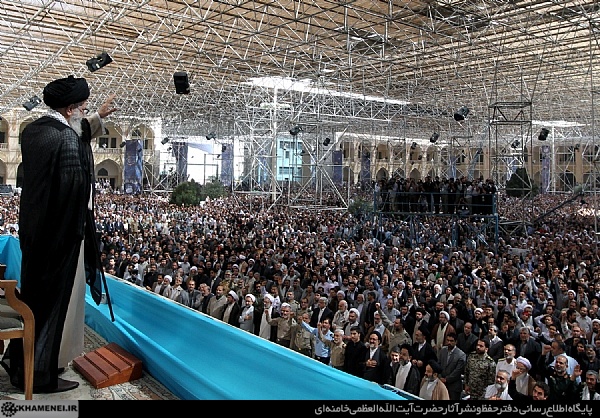
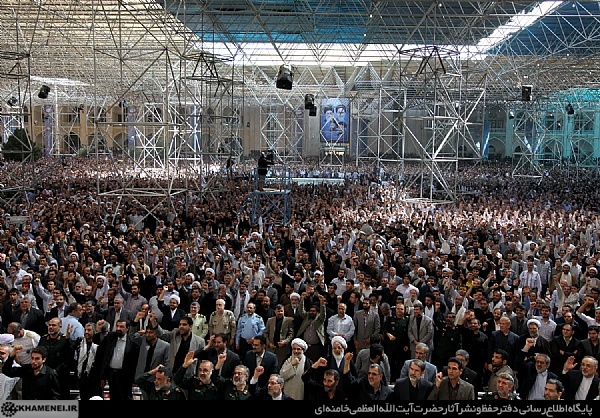
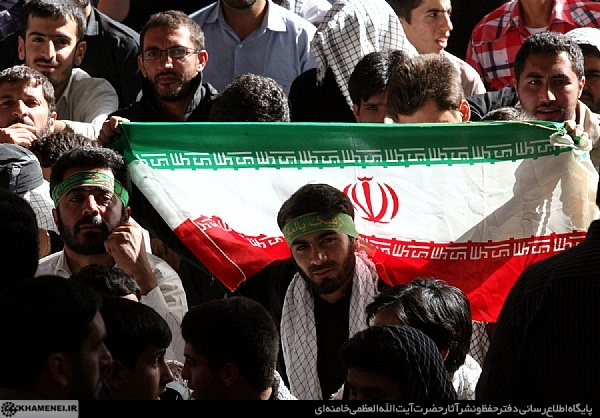
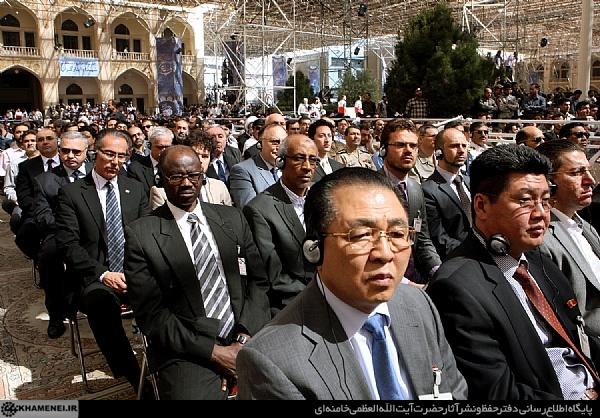
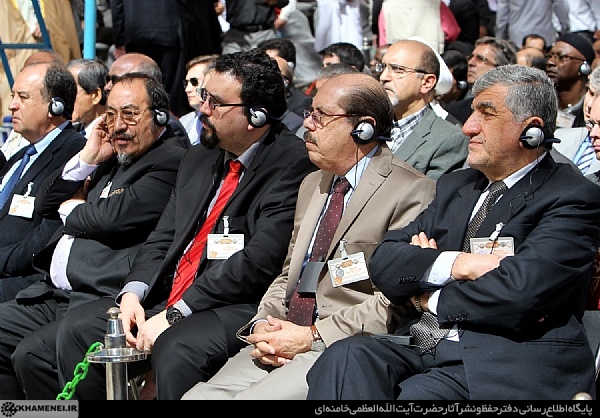
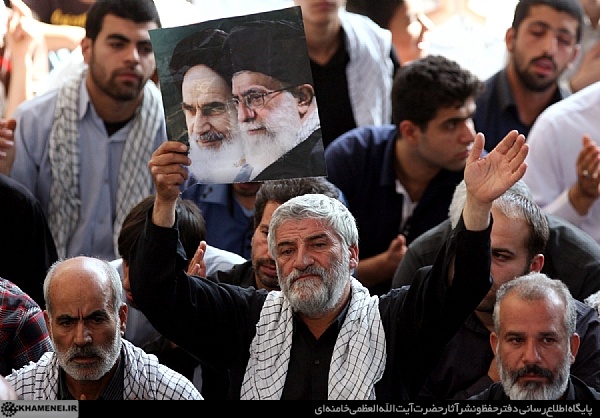
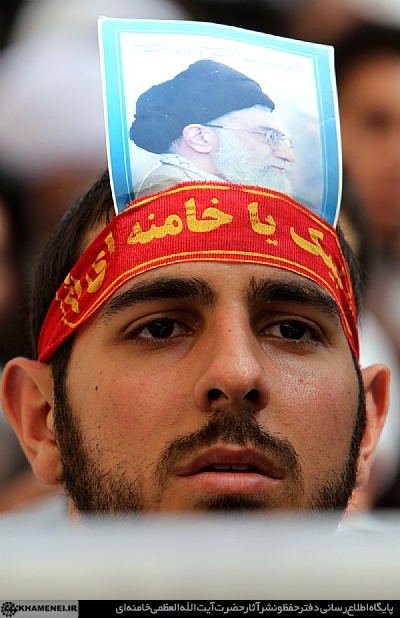



 It does not matter.
It does not matter.
